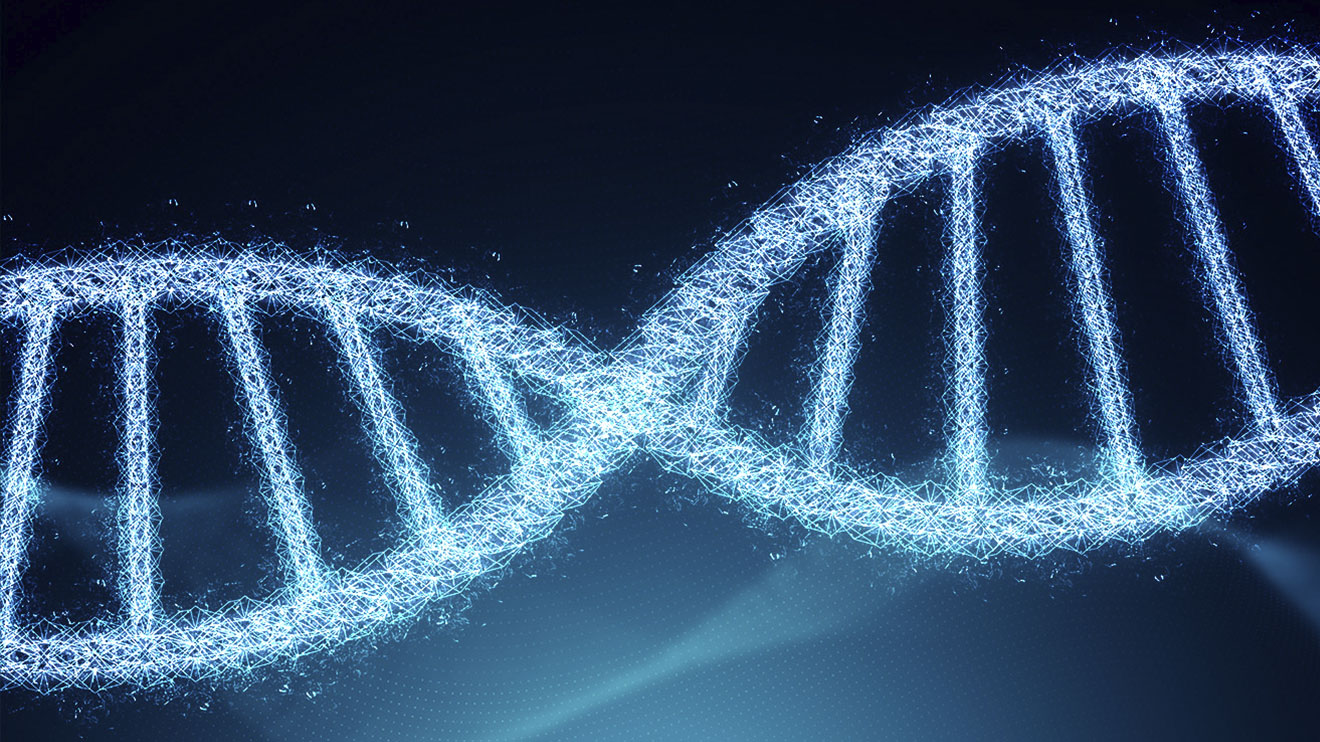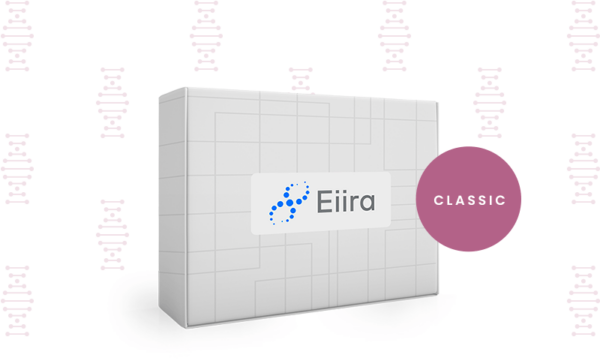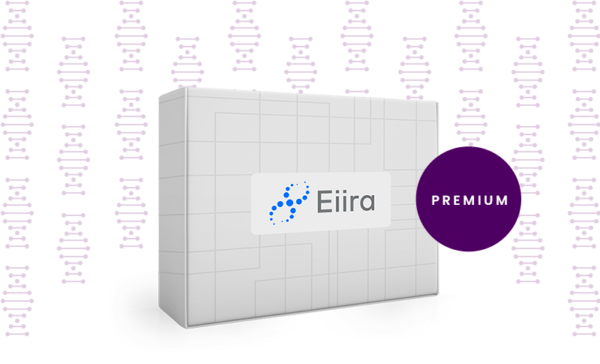
Monogenic inheritance
In monogenic inheritance, only a mutation in one copy of a single gene is needed for a person to develop a disease or condition. These mutations are uncommon in the population and each mutation is found in only about a handful of individuals in the world. However, since many different mutations cause rare diseases and conditions, there are still many individuals overall who have a rare hereditary disease or condition. There are different types of monogenic inheritance. Here we will explain autosomal dominant and autosomal recessive inheritance.
Autosomal dominant inheritance
If a mutation is inherited in an autosomal dominant manner, it is enough to have a mutation in one of the copies of a single gene for one to develop the disease (all people have two copies of all genes except for the sex chromosomes where men only have one copy of the genes found on the X chromosome). Parents, siblings, and children of someone with an autosomal dominant mutation will have a 50 percent chance of having that mutation themselves and developing the disease.
In some autosomal dominantly inherited diseases or conditions, everyone, or almost everyone, who carries a mutation will become ill. In some others, where not everyone who carries a mutation becomes ill, one usually speaks of reduced penetrance. Reduced penetrance is the most common in hereditary cancer. Reduced penetrance is probably explained by the fact that other protective factors compensate for the fact that one copy of the gene does not give rise to a functioning protein. Reduced penetrance is one of the explanations why a hereditary disease can appear to skip generations (which it does not, however, genetically).
Autosomal recessive inheritance
If a mutation is inherited autosomal recessively, one must have a mutation in both copies of a single gene to develop the disease. It doesn't have to be the same mutation but they have to be in the same gene. When a person develops a recessive disease, it is known that both parents are healthy carriers of a mutation. Siblings of someone with a recessive disease have a 25 percent chance of inheriting both mutations and developing disease.
Polygenic inheritance
The majority of all diseases and conditions are not inherited in an autosomal dominant or recessive manner. Instead, they can be caused by genetic variants in many genes. These genetic variants are common in the general population (occurring in more than 1 percent of the general population) and are usually called polymorphisms. Because they are common, there will be many individuals who carry these variants who never get sick. This is because a single polymorphism alone has a minimal impact on disease risk. Together, however, a combination of many polymorphisms can increase the risk of disease.
Through research, where hundreds of thousands of genetic variants are studied in many thousands of individuals, it has been seen that certain variants are more common in those who have a specific disease, compared to those who are not affected by the disease. Compared to monogenic diseases, it is more difficult to estimate the risk of developing a disease using a genetic test that analyzes several polymorphisms linked to a particular disease. Therefore, genetic testing of common variants is not currently used in clinical testing in healthcare.
Types of inheritance in hereditary cancer
Approximately 5-10 percent of all cancer cases are estimated to have a hereditary explanation where a mutation in a gene is the underlying reason why the person developed cancer (monogenic inheritance). In addition to these 5-10 percent, another percentage (which varies depending on the type of cancer) is hereditary. However, these are not explained by a single genetic variant but several (polygenic inheritance). To estimate the polygenic risk, the family history of cancer is used to estimate the risk of healthy people developing cancer, the so-called familial risk.
References:
National Library of Medicine- Monogenic and Polygenic Inheritance

